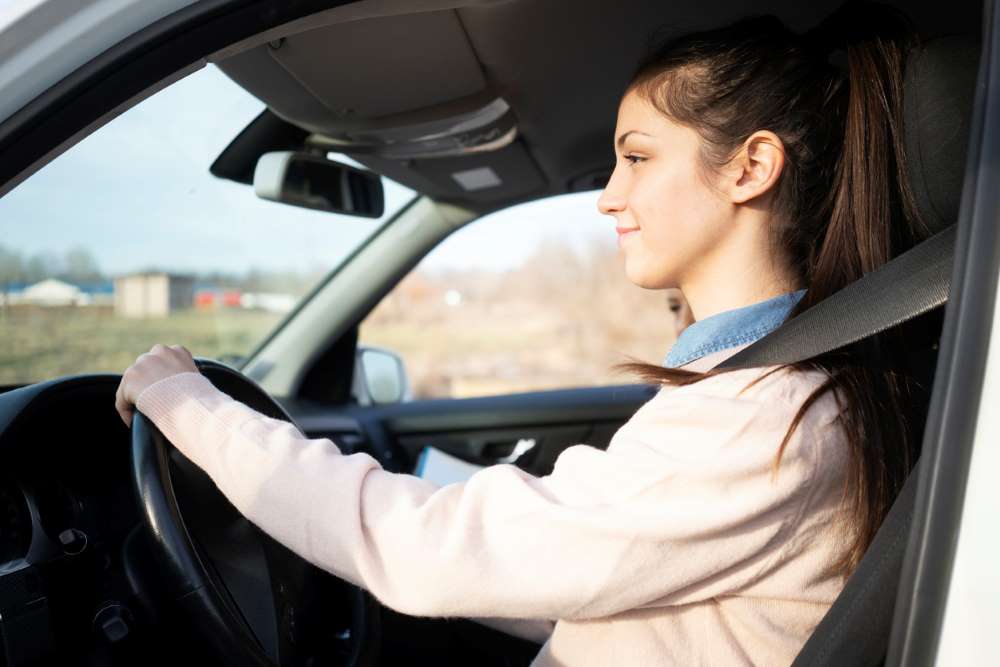
If you’re a parent and have a teenager who is about to start driving, you probably have different emotions. You may feel proud that they have reached this critical life point, and you know that they’re almost an adult.
You also might feel a bit nervous. You know that car collisions happen every day. Maybe your teen is very mature for their age, and you feel okay handing over your car keys, or perhaps you feel dread because you’re not sure they’re truly ready.
You can find a deserted parking lot and teach your teen how to drive there. When they’re ready, you can get out on some local roads so they can start to feel what being in traffic is all about.
As they’re getting closer to taking their driving test, you can also give them some tips. Here are some good ones that you should at least mention.
Wear a Seatbelt Every Time
There are seatbelt laws in this country, and it’s great that they’re in place. Seatbelts save lives in car accidents every day. Seatbelts:
-
Prevent passengers and drivers from flying through the windshield
-
Keep drivers and passengers from smacking their faces on the dashboard
If your child does not wear a seatbelt, they might hit their face on the dashboard or steering wheel if they have to stop suddenly. That can give them traumatic facial injuries that they’ll have to live with for the rest of their lives. That’s not something they ever want.
Also, if a cop sees them driving without a seatbelt, they can pull your teen over and give them a ticket. Your teen probably does not have a lot of money, so you might have to pay for that yourself.
If they do it too often, they can get points on their license as well. That’s not a good start to their driving experiences.
Don’t Drink and Drive
Your teenager should not be consuming alcohol anyway, but it’s naïve to think that they won’t try to experiment if they get the opportunity. Maybe you let them borrow the car, or perhaps you bought them a used one because they promised they would be responsible with it. Let’s say they go to a party, and they have a couple of beers there.
If they drink and then try to drive home, that’s bad news. They might:
-
Get in an accident
-
Get a DUI
You need to stress to your teenager that drinking and driving is one of the worst and most serious things they can do. If they have had virtually no experience with alcohol, and they experiment with it and then try to drive, they may have significant impairment and not realize it.
You can show them the country’s drunk driving statistics. You can tell them that people die every day on the road because they ingest alcohol before they drive. Make sure they completely understand how serious this is and how disappointed and angry you will be if they do it.
Don’t Speed
You can also tell them they always need to drive the speed limit. You can tell them what the speed limit is on the local roads and the area highways. You can quiz them on it a little bit before they take their driving test.
If they know the speed limit, there’s less chance they’ll break it. You can also emphasize that if they speed, it’s more likely they will cause an accident. You can tell them about how dangerous it is if they get in an accident going fifty miles per hour versus them going thirty.
You should also mention things like slowing down for crosswalks and school zones. You should review what they should do if a school bus pulls over in front of them and extends their stop sign. These are all things your teenager should know for their driving test, and they should also have this knowledge for real-life situations.
No Highway Driving Until They’re Ready
You can also talk to them about highway driving and how it’s different than local road driving. It’s possible that the DMV employee who does their license test might have them go on the highway, but it’s more likely they’ll stick to local roads.
You can tell them how they need fast reaction time on the highway because they’re going at a higher speed than on local roads. They must keep a safe distance from the vehicle ahead of them, and they must be ready for changing traffic conditions.
You can take them out on the highway when they’re ready, but not before. Make sure they’re used to some different local road traffic conditions before you take that next step.
No Texting and Driving
You should also stress that they should never text and drive. You can tell them that distracted driving is one of the most dangerous things they can do and that many individuals cause accidents because they’re trying to use their smartphone while driving.
You can talk to them about Bluetooth and how it’s safer than using a phone while driving, but it’s also still a potential distraction. If your car has it, you can explain how they should only use it in an emergency and not just to chat with their friends as they drive. Your teen is not an experienced driver yet, and they need to focus on the road rather than a Bluetooth conversation.
There are several other things you can talk about with your fledgling driver. You can speak to them about driving in different weather conditions, like snow, rain, or fog. You can tell them about when it’s safe to turn right on a red light and how they should stop completely at stop signs.
If you’ve been driving for many years, you can tell about the different experiences you’ve had. Your wisdom can help them. With your guidance, they will surely become courteous and safe drivers as they log some real-world road time.



























